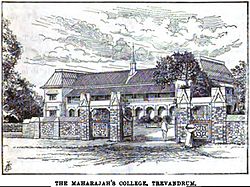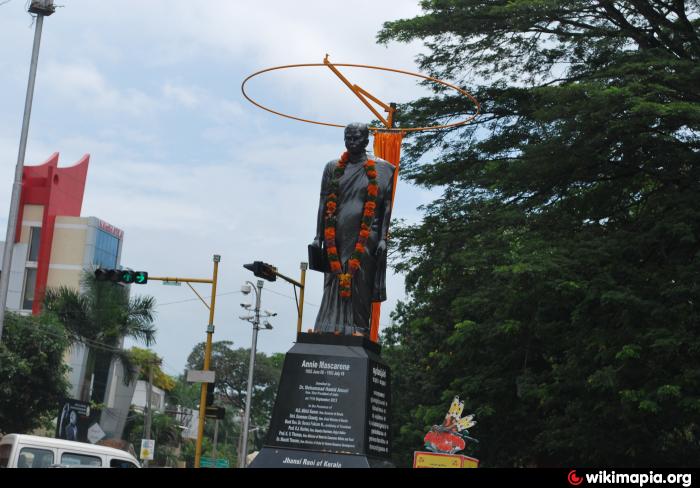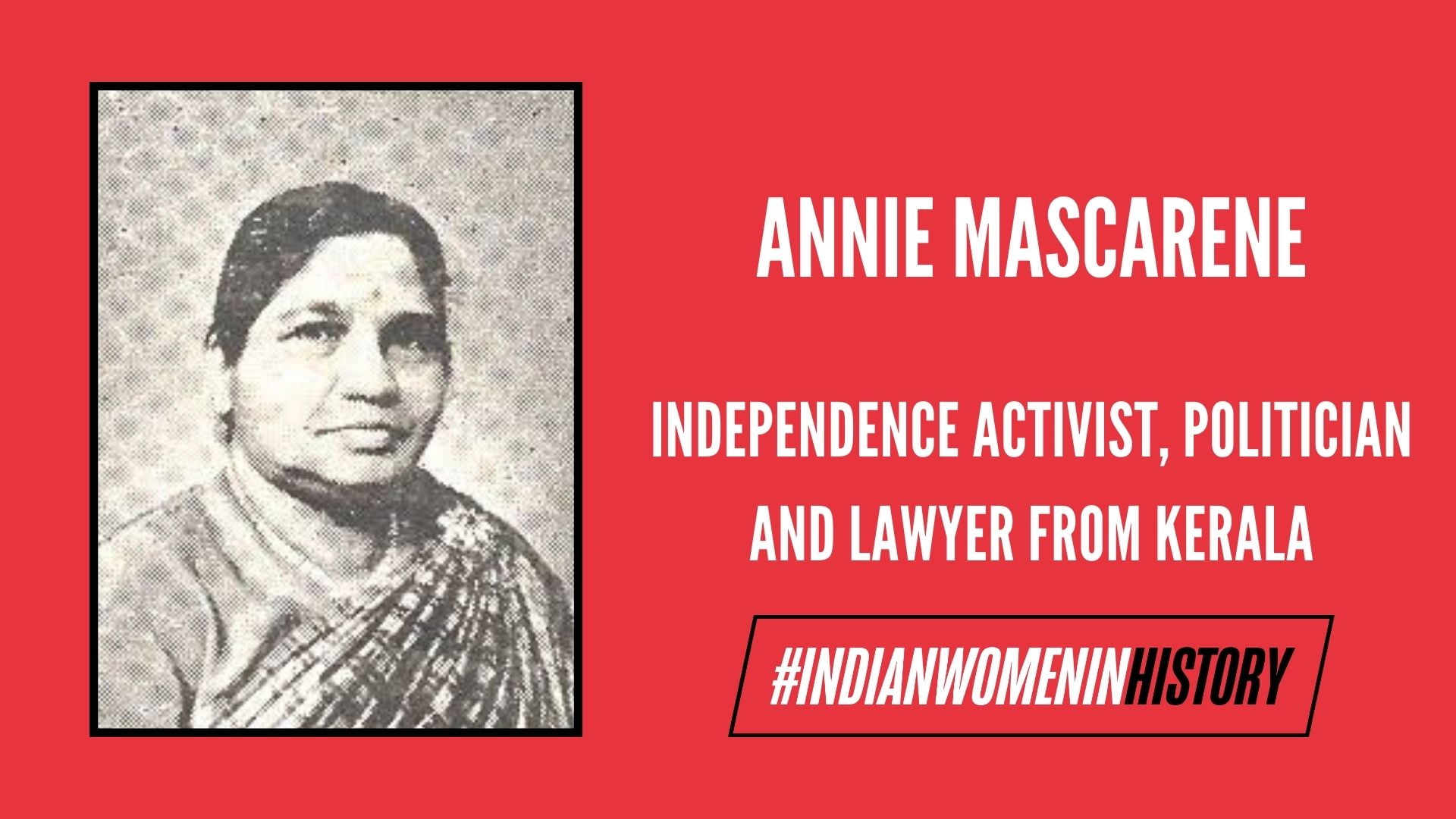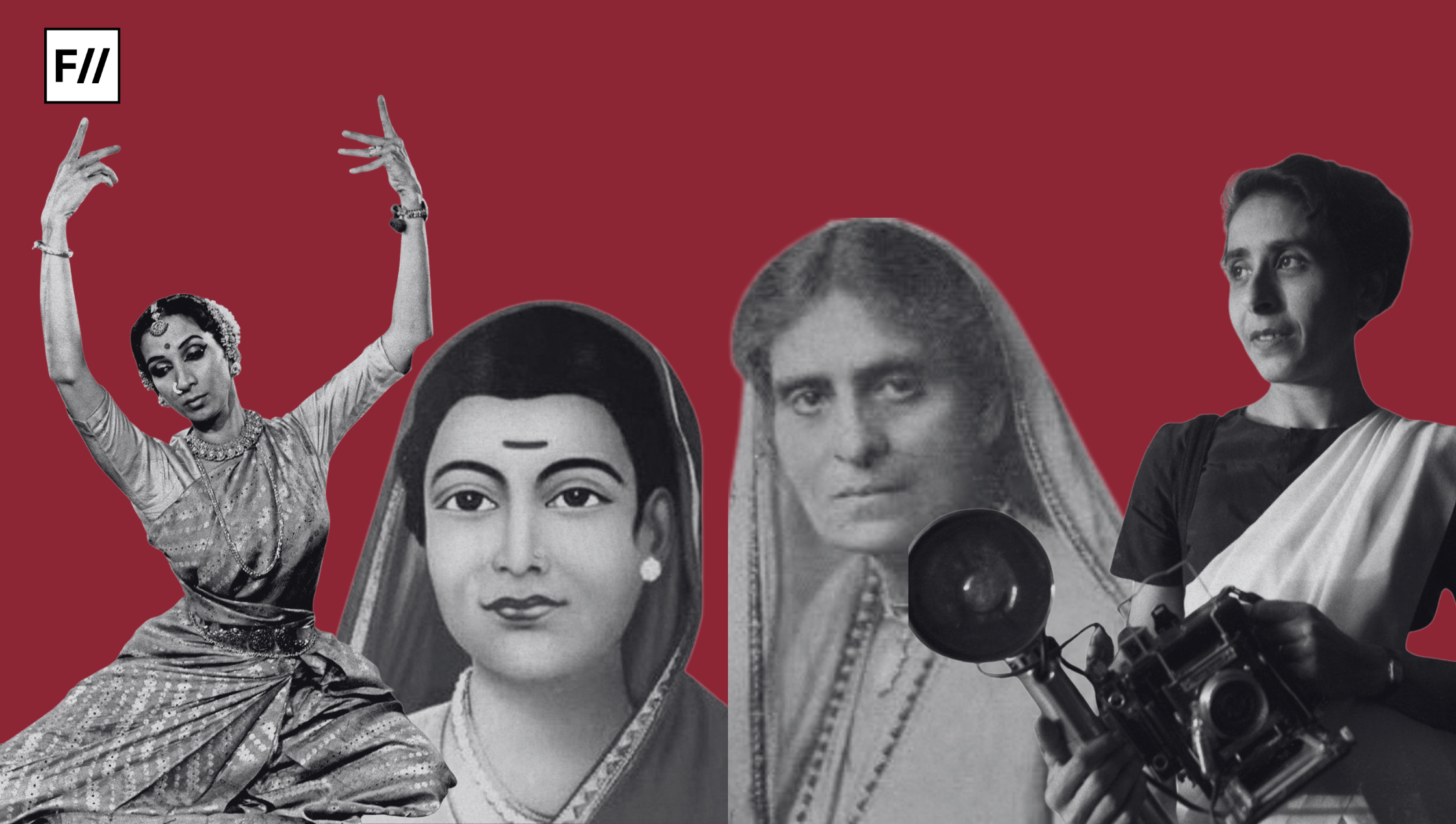There were 299 members in the Constituent Assembly led by Dr Bhimrao Ambedkar in 1946. This assembly included lawyers, freedom fighters and politicians. Regular rhetorics of history have made us uncontestedly believe that men, not women, were the primary agents in forming the Indian Constitution. However, as much as history has denied knowing them, there were 15 women in the Constituent Assembly making their mark and asserting female agency. One of those women was Annie Mascarene.
Early Life
On the 6th of June in 1902, Annie Mascarene was born into a Latin Catholic family in the Travancore State of India. She grew up to pursue a double masters in History and Economics in Travancore. After her studies, she moved to Sri Lanka to serve as a lecturer.

She scheduled her return to India and after a brief stint in law, she again dabbled in teaching at her alma mater – Maharajah’s Colleges for Arts and Law, Trivandrum. However, her academic feats aside, Annie Mascarene is mostly known for her substantial contribution to Indian politics during the Independence era.
Spearheading the political domain
She spearheaded the demand for women’s representation in the 40’s and broke the sexist barrier on many political fronts. She served as an MLA for the Travancore Legislative Assembly. She was the first women to become an MP from Kerala in the first Lok Sabha besides joining the Constituent Assembly under B.R. Ambedkar.
As part of her independence activism, she led the fight to integrate and cement Travancore’s place in the newly independent nation of India. The princely state was formerly recognized as a ruled area and not a part of India – Mascarene’s primary agenda. Witnessing a crucial turning point in her home state’s history and many other princely states, she along with other leaders like Vijay Singh Pathik and Sheikh Mohammed Abdullah, catalyzed the fight of their inclusion into India as a nation.
The British and rulers of these states made attempts to curb these movements and immobilize their leaders, including Annie Mascarene. There were incessant attacks on the property and life of Mascarene and her allies. However, the politically active figure proved her mettle and not after long, Travancore was inducted as a part of India and its legislation.
Composing the Constitution
Upon joining the Constituent Assembly, she opened her greetings to the speakers of the house, she said, ”On behalf of those few ladies here, I hope that you will give us sufficient protection and opportunities for expressing our opinion in this House”.
In the assembly, Mascarene’s agendas focused on the struggle of the people in Travancore. Even though she believed that centralization of power was essential for a successful democracy, she did realize that too much of centralization could lead to democratic tenets being altered.
Also Read: Dakshayani Velayudhan: The Only Dalit Woman In Our Constituent Assembly | #IndianWomenInHistory
She put forth a nuanced argument in the assembly for partial provincial autonomy and said that the centre cannot assume to be the complete “custodian of justice”. Mascarene supported the proposition of provinces having wriggle room and space to evolve as legislations through trial and error. She reiterated the fact that India was still discovering itself as a democracy and setting rules in stone would be detrimental. With regards to this, she put forth the following statement:
“We are here laying down principles – rudimentary principles – of democracy, not for the coming election but for days to come, for generations, for the nation. Therefore principles of ethics are more suitable to be considered now than principles of expediency. I am a believer in politics as nothing but ethics writ large”.
The march against meddling men
Throughout her career, Annie Mascarene received her fair share of sexism, mostly due to being in such a traditionally masculine work environment. Her being a woman made it difficult to thrive in politics.
One of her first tiffs was with the dewan of Travancore – C.P. Ramaswamy Iyer. He came from a conflicting ideology as he believed that Travancore should not be a part of India. This, many say, was in his own personal interest. The dewan stood as one of the biggest hurdles in Mascarene’s struggles to integrate her home state into India as he saw her as a threat to his ambitions.
There was also another instance where she accused the Minister of Public Works – John E Philipose for corruption while working in Chief Minister Parur T.K Narayana’s ministry. Parur T.K. stood by Philipose’s side but events eventually led to him filing his resignation. Philipose, apart from denying the charges, also filed a defamation case against Annie Mascarene which he consequently won. As a result, Mascarene had to pay compensation for the damages.
Sexist consequences of being candid

Mascarene, through her political ventures, had established herself as a brave force to be reckoned with. She secured her position as one of India’s primary Independence activists using her strong oratory skills.
While her speeches added new strength to her character they were also unfairly categorized to be extremely provocative because they were coming from the “fairer sex”. Citing a speech given in Bombay, Gandhi in a letter to her in 1946, wrote:
“Even otherwise, I know that you have no control over your tongue and when you stand up to speak, you blab anything that comes to your mind. This speech also is quite a specimen, if the newspaper report is correct. I have sent the report to Bhai Thanu Pillai. You can read it. Such indiscreet talk can do good neither to you nor to the poor people of Travancore. Besides, by your act, you put the whole fair sex to shame”.
Through her career, Mascarene had many run-ins with the law due to being an outspoken woman in pre-Independence India. She served 18 months in prison 1938 for sedition, 2 years in 1942 for inflammatory speech and 6 months in 1946 for allegedly spreading rumours that incited violence.
In a gendered domain like politics, it was hard to even see women, let alone appraise their opinions. Annie Mascarene, by using her speeches (provocative or not) as powerful tools, made sure her points were registered well. She was not only instrumental in uplifting her community throughout her career but also women. Justice is not done to her work in current popular records of history and thus it is high time we brought Annie Mascarene out of the shadow of her male counterparts.
Also Read: These Are The 15 Women Who Helped Draft The Indian Constitution
About the author(s)
Shruti spends the better half of her day learning about feminism or tweeting about it. She intends to travel more and eat foods she can't spell.




